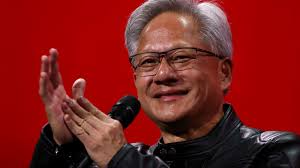Nvidia has announced its intention to resume sales of its H20 general processing units to clients in China after the U.S. government assured the company that licenses would be granted. This move comes after the suspension of sales of the H20 chips in April, a decision made to avoid falling under export controls pertaining to China. In a statement, Nvidia expressed hope that deliveries would commence soon, signaling a positive outlook for the company's operations in the region.
The backdrop of this development includes a preliminary trade deal between the United States and China that was established last month. This agreement aimed to have China resume rare earth exports while the U.S. would relax its tech export controls, creating a more favorable environment for companies like Nvidia to navigate international trade regulations.
Nvidia's CEO, Jensen Huang, has been actively lobbying against export controls, arguing that they hinder American tech leadership. In a recent statement, Huang highlighted how chip restrictions had significantly impacted Nvidia’s market share in China. As part of its strategy to navigate these challenges, Nvidia unveiled a new product, the "fully compliant" GPU, NVIDIA RTX PRO, designed for smart factories and logistics applications.
The potential shift in the U.S. government's stance on tech exports follows a meeting between Huang and President Donald Trump. During this meeting, Huang reiterated Nvidia's commitment to supporting the administration's job creation and onshoring efforts, as well as the goal of positioning America at the forefront of global AI development.
Simultaneously, Huang engaged with government and industry officials in Beijing to discuss the significance of AI and avenues for advancing safe and secure AI technologies for societal benefit. These discussions reflect Nvidia's broader commitment to collaborating with stakeholders globally to drive innovation in AI research and development.
The intersection of economic policies, technological advancements, and geopolitical dynamics underscores the complexities that tech companies like Nvidia navigate in their operations across borders. As the tech industry continues to evolve rapidly, companies are increasingly reliant on proactive engagement with policymakers to address regulatory challenges and foster an environment conducive to innovation and growth.
As Nvidia navigates the complexities of the global tech landscape, its interactions with government entities and industry stakeholders play a crucial role in shaping its strategic direction and market positioning. By actively engaging in discussions on trade policies, export controls, and technological advancements, Nvidia aims to not only safeguard its business interests but also contribute to the advancement of AI technologies on a global scale.
In a rapidly changing global economy, the interplay between technology companies, governments, and market dynamics underscores the importance of proactive engagement and strategic decision-making. Nvidia's recent developments in the Chinese market reflect a broader trend within the tech industry, where companies are navigating a complex web of regulatory frameworks, market dynamics, and geopolitical considerations to drive innovation and sustain growth in an increasingly interconnected world.
In conclusion, Nvidia's efforts to resume sales of its H20 chips in China signal a positive development for the company amidst a shifting regulatory landscape. By actively engaging with stakeholders in both the U.S. and China, Nvidia positions itself as a key player in driving innovation and shaping the future of AI technologies on a global scale.

